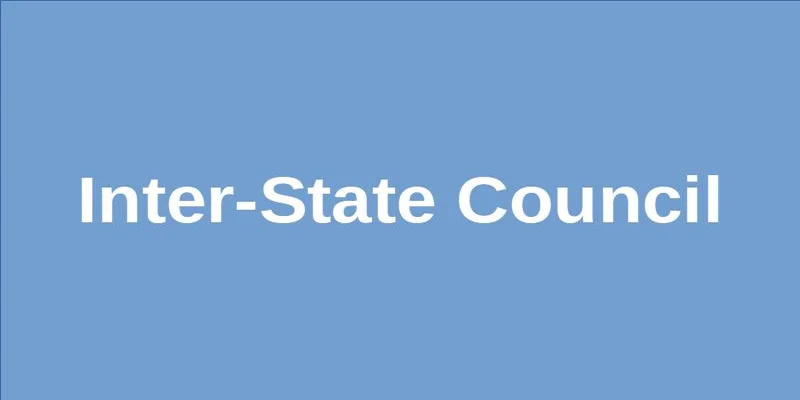The Inter-State Council (ISC) promotes cooperation and coordination between the central and state governments. It was established under Article 263. This empowers the President of India to establish an Inter-State Council. ISC addresses issues of common interest to multiple states and the central government.
These concise notes should give you a basic understanding of the Inter-State Council, which is an important topic for UPSC exams, especially in the context of Indian federalism and governance.
This body was formed on the recommendation of the Sarkaria Commission by a presidential proclamation on 28 May 1990. The Inter-State Council is a non-permanent government body.
Structure of Inter-State Council:
- Prime Minister of India (Chairman)
- Chief Ministers of all the states
- Chief Ministers of Union Territories with a legislative assembly
- Administrators of Union Territories without a legislative assembly (if applicable)
- Members of the Union Cabinet (selected by the Prime Minister)
The Standing Committee is composed of:
- Minister of Home Affairs.
- 5 cabinet ministers.
- Chief Ministers of 9 states.
Function of Inter-State Council
- Investigate and discuss subjects of common interest between the center and the states.
- The ISC recommends based on its discussions and investigations.
- Promotion of Cooperative Federalism
Roles and Responsibilities:
Article 263 provides for the following roles and responsibilities of the Inter-State Council:
- Inquiring into and advising upon disputes between states.
- Investigating and discussing subjects in which states or the Union and one or more states have a common interest.
- Making recommendations on such subjects, especially for better policy coordination.
Article 263
| Article 263 | Points |
|---|---|
| Establishment | The President has the authority to establish an Inter-State Council by issuing an order |
| Objectives | Inquiring into and advising upon disputes between states. Investigating and discussing subjects in which some or all of the states, or the Union and one or more states, have a common interest. |
Issues with Inter-State Council
- Limited Enforcement Power
- Ineffectiveness.
- Political Interference
- The Council has only had 12 meetings in the past 25 years and has made little headway in resolving disputes between States.
- It cannot veto or amend legislation
- Limited Scope
Inter-State Water Disputes
- Article 262 and Article 131 are related to Inter-State Water Disputes.
- The Inter-State Water Disputes Act of 1956 is a framework for the resolution of water disputes between states.
- he central government can set up tribunals to resolve water disputes.
- Few notable disputes are the Cauvery River dispute (Karnataka and Tamil Nadu), the Krishna River dispute (Andhra Pradesh, Karnataka, and Maharashtra), and the Godavari River dispute (Andhra Pradesh, Telangana, Chhattisgarh, and Maharashtra).
Important Points: Inter-State Council
01. The Inter-State Council has met 12 times so far. 02. The first session was chaired by Prime Minister V.P. Singh (October 10, 1990).03. The last time, Prime Minister Shri Narendra Modi became the President of the Inter-State Council on the 25th of November 2017.List of Meetings of Inter-State Council
- 10 October 1990 – Vishwanath Pratap Singh
- 15 October 1996 – H. D. Deve Gowda
- 17 July 1997 – I. K. Gujral
- 28 November 1997 – I. K. Gujral
- 22 January 1999 – Atal Bihari Vajpayee
- 20 May 2000 – Atal Bihari Vajpayee
- 16 November 2001 – Atal Bihari Vajpayee
- 27–28 March 2003 – Atal Bihari Vajpayee
- 28 June 2005 – Manmohan Singh
- 12 December 2006 – Manmohan Singh
- 16 July 2016 – Narendra Modi
- 25 November 2017 – Narendra Modi
Outcome 11th Inter-State Council Meeting
- Analyzing the Centre-State Relations proposals made by the Punchhi Commission.
- Use of DBT and Aadhaar for Public Services, Benefits, and Subsidies
- Improvement of educational quality with a focus on bettering learning outcomes, motivating better performance, etc.
- Internal security with a focus on intelligence coordination and sharing to combat terrorism, and insurgency, and to implement police reforms.
Read More
